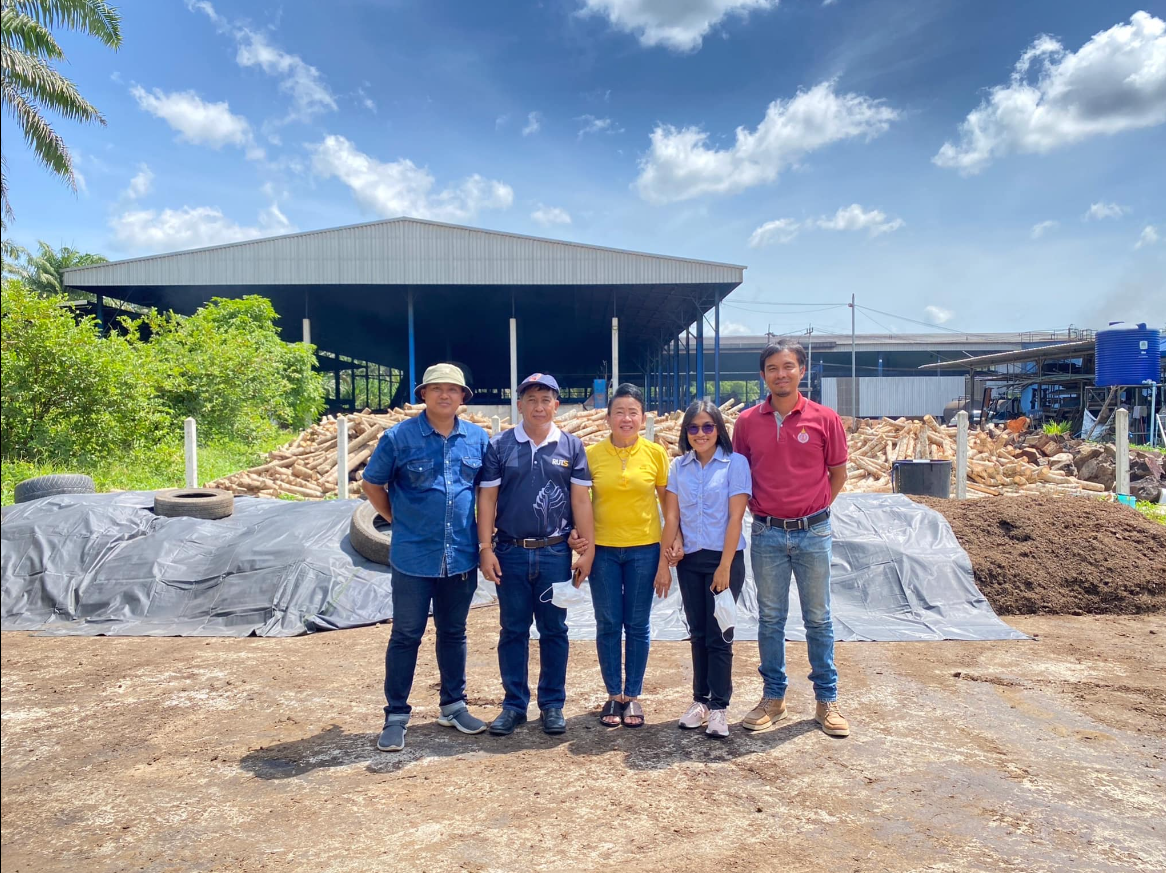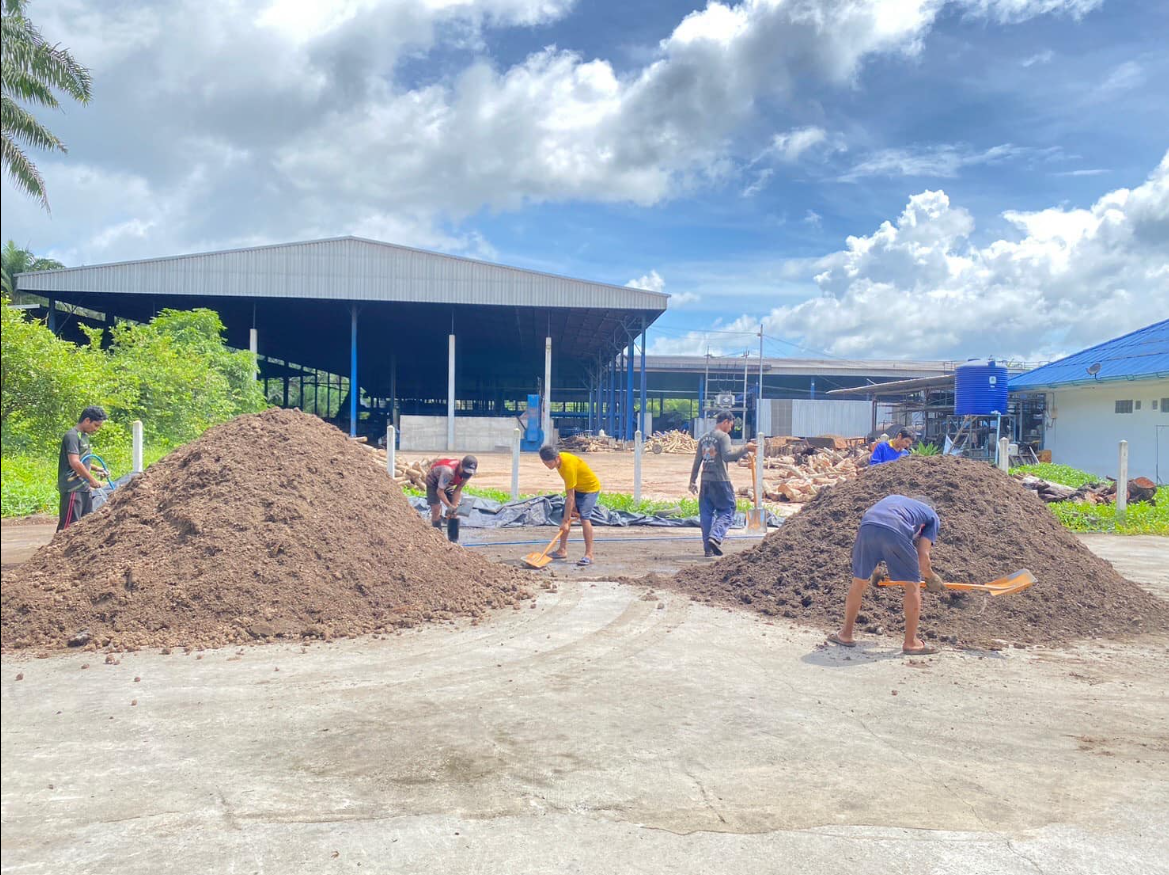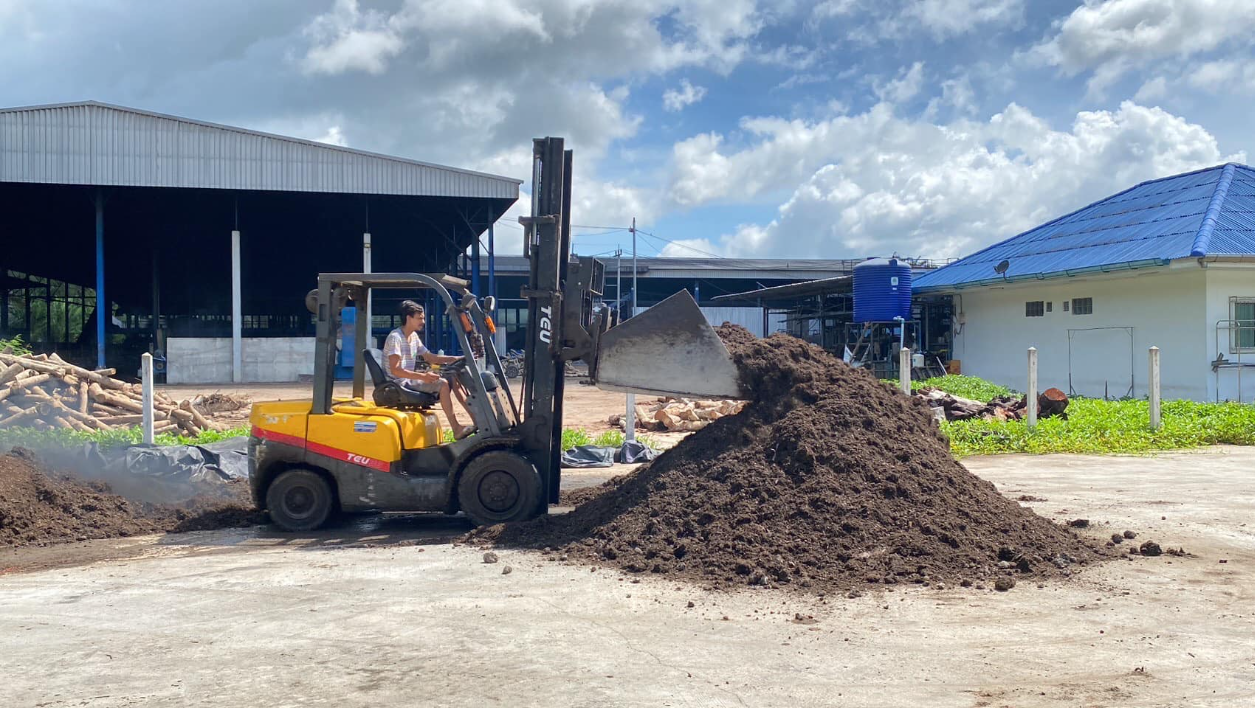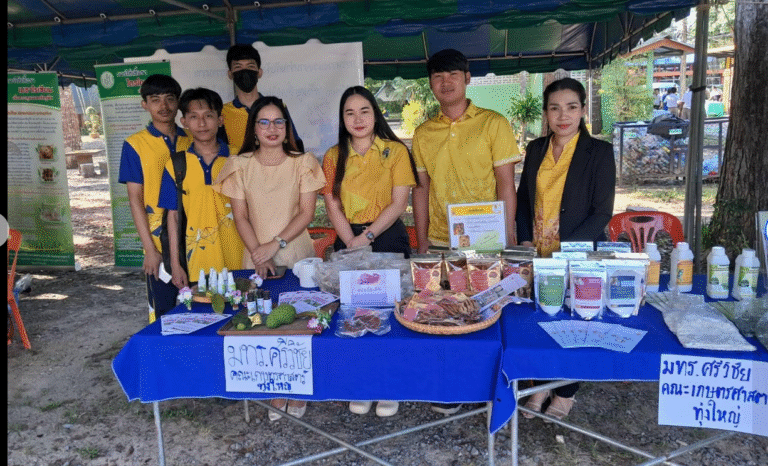Reporters: Asst.Prof.Dr. Prapot Maliwan
Assoc.Prof.Dr. Pornsil Seephueak
Asst.Prof.Dr. Nion Chirapongsathonkul
Asst.Prof.Dr. Worawitoo Meesook
Evidence Date: during 2023 Jan-Dec
Related SDGs:
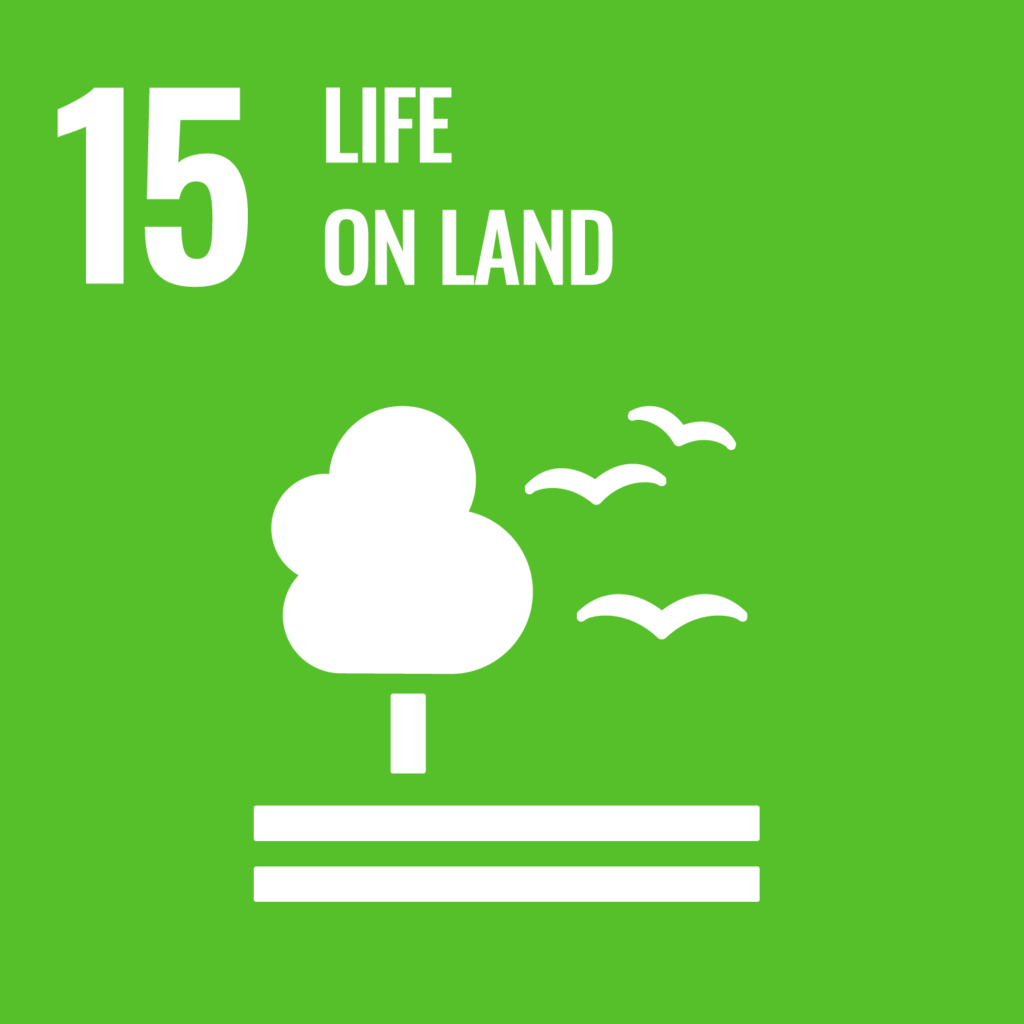
Related Indicators: 15.3.1
Details:
A lecturer from the Faculty of Agriculture at Rajamangala University of Technology Srivijaya is spearheading an innovative research project on organic composting, bringing together expertise and resources from various partners. The project focuses on transforming waste materials from palm oil extraction, along with animal manure, into nutrient-dense organic compost. With extensive laboratory trials completed, the research team formulated an optimized compost mix that promises to benefit soil health and productivity. Now moving to large-scale composting, the team aims to meet the Department of Agriculture’s standards for organic fertilizer registration, a goal made possible through strong collaborative support. Sin Charoen Palm Oil Co., Ltd., a key partner, has generously provided essential raw materials and composting facilities, which have proven invaluable to the project’s success.
Support from Walailak University Science Park has also been instrumental, providing crucial funding to propel the project forward. This funding not only enabled the team to carry out in-depth experiments but also allowed for the scaling up of composting operations to benefit more farmers in the community. By combining resources and expertise, the project highlights how collaboration can pave the way for eco-friendly agricultural practices that address critical issues, such as waste reduction and sustainable soil management. The collaboration also serves as a model for integrating industry and academia to solve practical problems through innovative solutions. Under the lecturer’s guidance, the team demonstrates a commitment to sustainable agriculture that extends beyond research, aiming to provide Thai farmers with reliable, natural alternatives to synthetic fertilizers. This initiative reinforces the value of academic-industry partnerships in addressing environmental challenges and promoting responsible agricultural practices.
In addition to industry and academic partnerships, this project fosters connections with local communities, who stand to benefit from more sustainable farming solutions. The project’s success relies on coordinated efforts, with each partner bringing a unique set of resources and perspectives to support the shared vision. Through their combined efforts, the project highlights how collaborative research can lead to solutions that are both scientifically sound and practically viable for farmers. The process of turning agricultural by-products into a valuable composting resource represents a step forward in waste management and organic farming. As these methods are refined, the project’s reach can extend to benefit more regions and more communities. This collaboration also sets the stage for future research, as partners look to develop new methods that build on this success. The lecturer’s role underscores the critical importance of leadership in bringing stakeholders together for shared goals in agriculture. Ultimately, this project demonstrates the power of partnership in advancing Thailand’s commitment to sustainable and innovative agricultural solutions.
